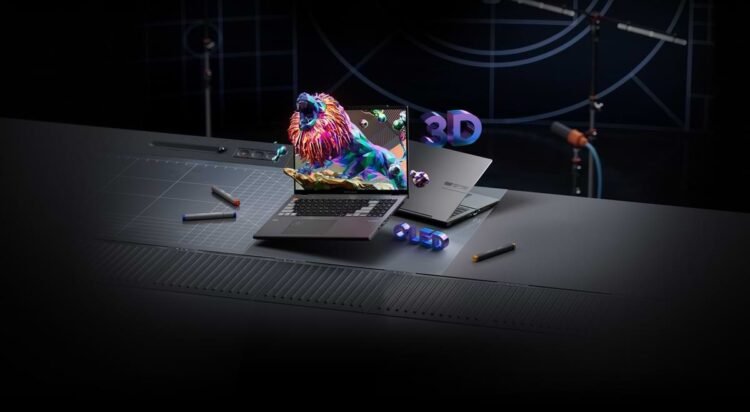CES, also known as the Consumer Electronics Show, one of the biggest tech shows of the year, is now live. This show brings us new tech from all around the world. One of the techs that caught our eye is the Glasses-Free 3D OLED display tech. How cool is it to feel the 3D without having to wear glasses? Asus has achieved this and released some laptops with this display tech.
Let’s have a quick read on how the tech works. This kind of glasses-free 3D display isn’t the first time; back in 2021, Acer already tried this. Acer at that time used Spatial Labs technology which uses a stereo camera, optical lens, and rendering in real-time. It was available in high-end Acer laptops, making decent glasses-free 3D realistic images.
Now it’s time for Asus to move ahead in glasses-free 3D display technology. This is known as Autostereoscopic technology. Asus also uses Spatial Vision just like the Acer but also by using a combination of a lenticular lens and advanced eye tracking camera technology. In simple terms, it will project 3D images depending on the user’s eye lens position. It will adjust the image depending on the direction of the head and eyes. The main difference that makes Asus tech more advanced than Acer’s is the support for the number of people watching the screen. Asus had support for two people, whereas Acer had only support for one person looking at the display.
The glasses-free 3D display technology is present in the latest Asus Vivobook Pro 16X 2023. The laptop comes with a 3.2K OLED 3D Display that supports a 120Hz refresh rate.
So that’s been it. Thank you for reading, and do share the article if you get some information. Also, keep an eye on this space for more relevant updates. Stay safe, and we hope to see you around.






